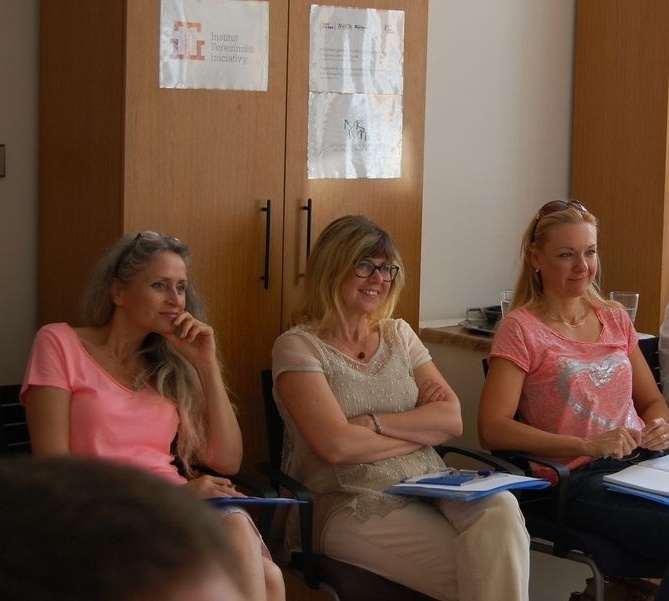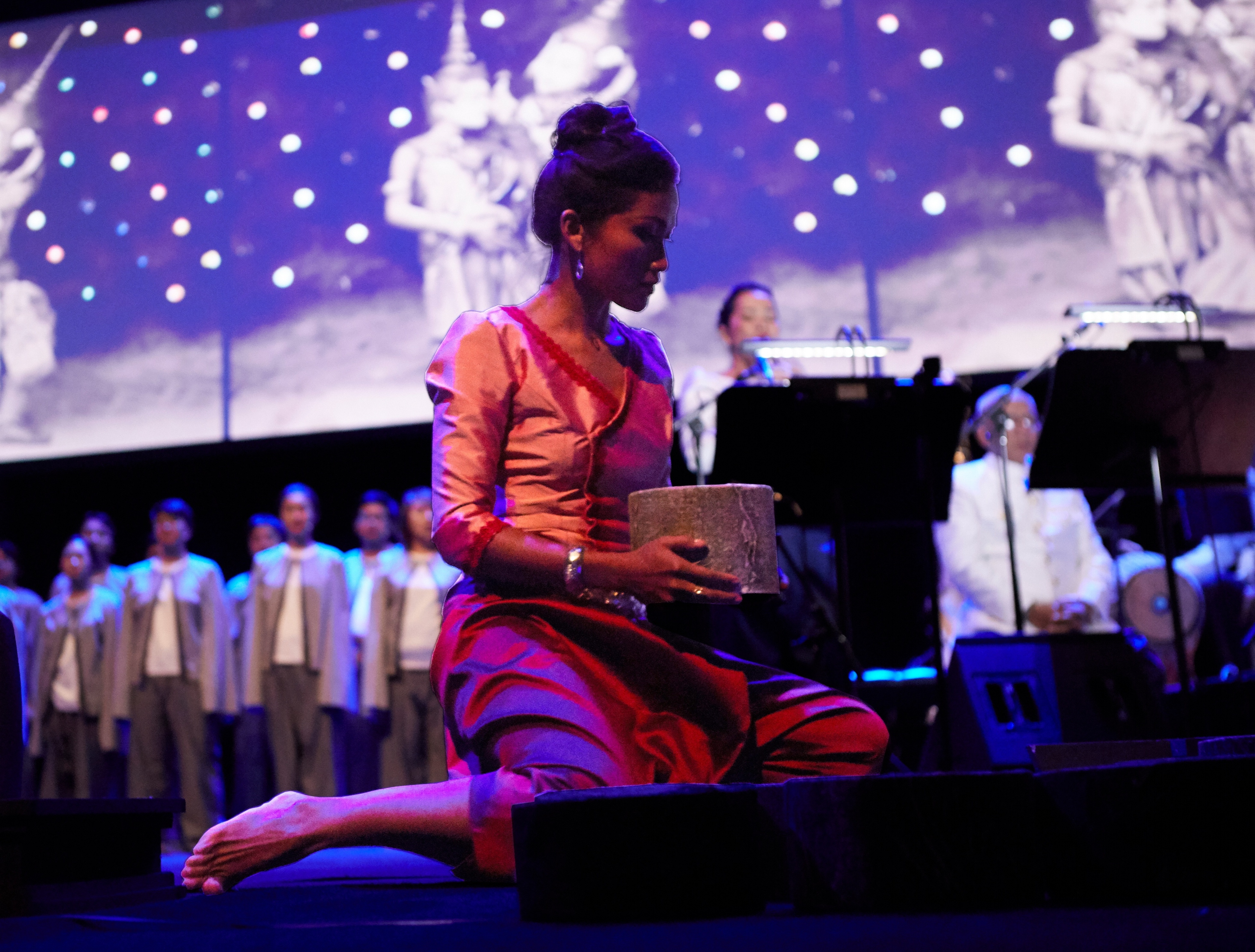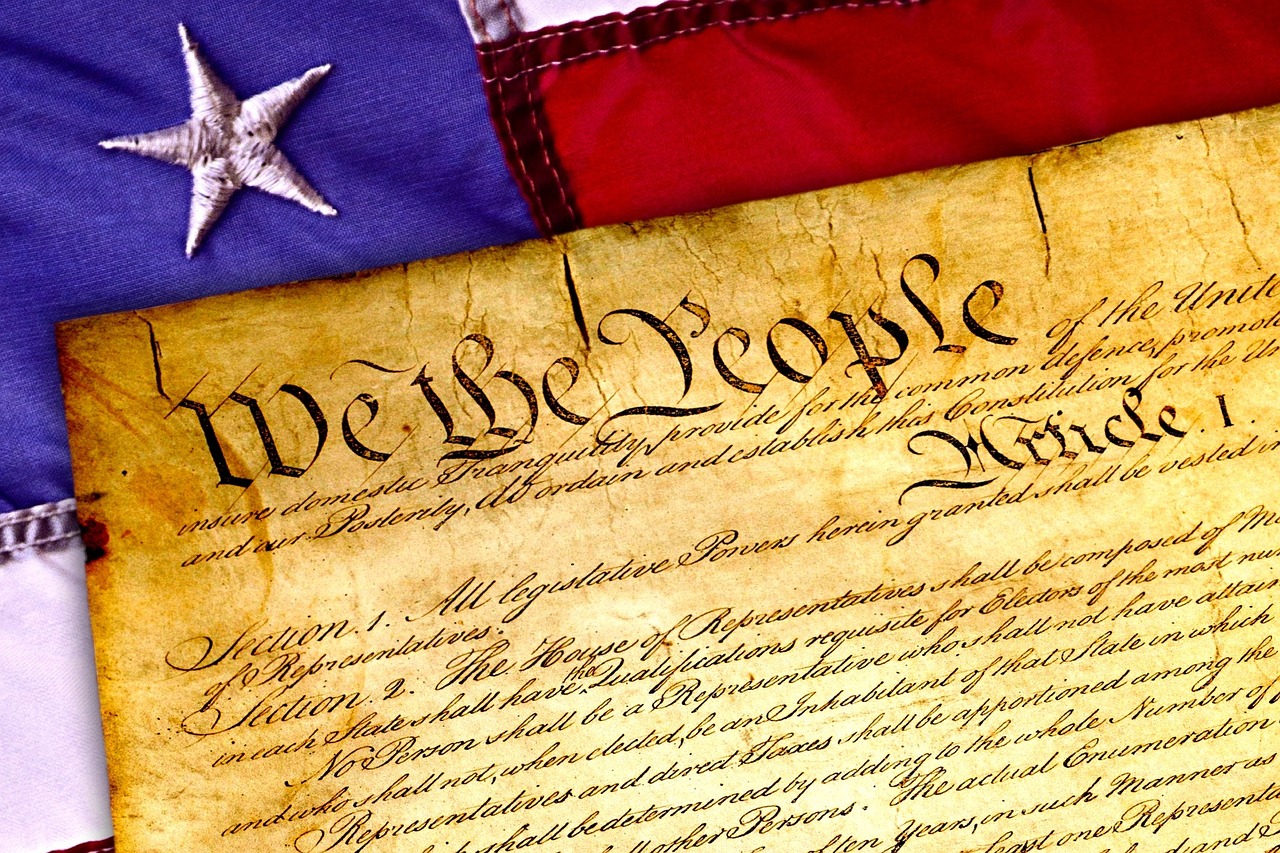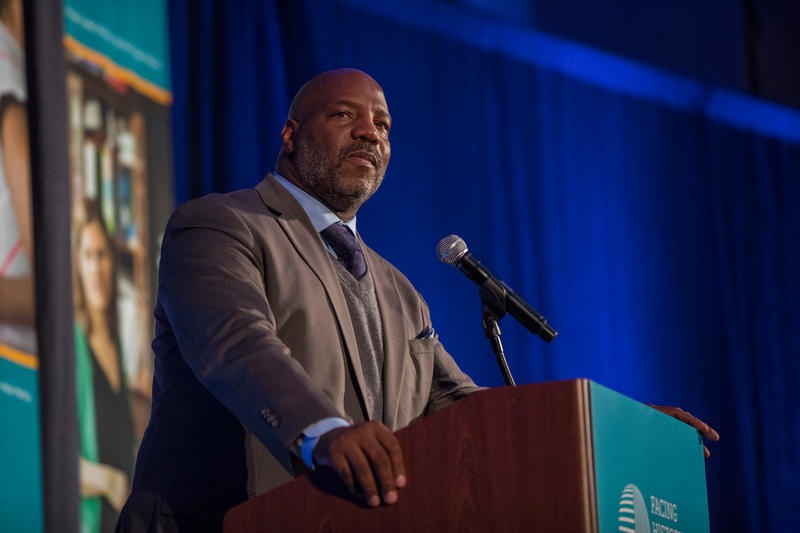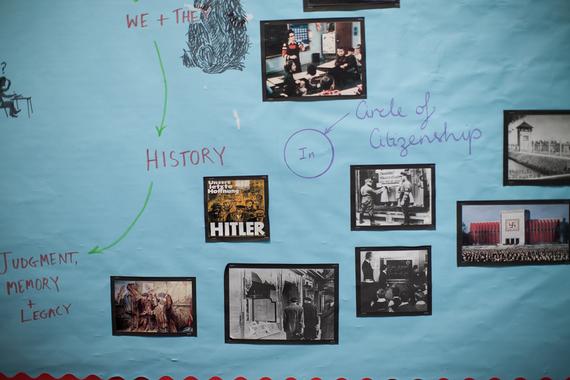Teachers all over the world are grappling with how to address today's divisive climate with their students. The same is true for Petr Sokol and Roman Anyz, trainers at the Terezin Initiative Institute in the Czech Republic. They have been partnering with Facing History to teach about democracy, the Holocaust, and the treatment of the Roma while facing uncertain political times in their country today. Sokol and Anyz, who is also a middle school teacher, share how they are helping teachers consider how they can encourage young people in the Czech Republic to think critically about what is happening around them. New concerns over populism rising in the country makes this task feel more important than ever.
Need a New Year's Resolution? Practice More Empathy. Here's How.
Posted by Facing History and Ourselves on January 3, 2018
It's the season for resolutions. The beginning of a new year makes us promise ourselves to be more healthy or to get more sleep or to spend more time with family. But what about practicing more empathy—that is, the ability to sincerely understand and share someone else’s feelings? Jane McGonigal, world-renowned game designer and Director of Game Research and Development for the Institute for the Future, says you can. And she can tell you how.
Topics: Empathy
Today’s News, Tomorrow’s History: The Rohingya Crisis in Myanmar
Posted by Monica Brady-Myerov on December 27, 2017
Today’s News, Tomorrow’s History is an ongoing series with Listenwise. This series connects Facing History’s themes with today’s current events using public radio to guide and facilitate discussions around the social issues of our time. We will take a look at the violence in Burma, or Myanmar, that has made the Rohingya leave their country.
Topics: Today's News Tomorrow's History, current events, Listenwise
Engage your heart and mind this winter with these books selected by Tracy O’Brien, Facing History’s Director of Library Services. They touch on important Facing History themes such as history, democracy, identity, inclusion, and education.
Topics: Facing History Library
The Power of Memory and Art to Heal a Society After Genocide
Posted by Francesca Colletti on December 19, 2017
So many times in the last year I have turned to this excerpt of the poem, “What They Did Yesterday Afternoon,” by Somali-British poet, Warsan Shire:
"later that night
I held an atlas in my lap
ran my fingers across the whole world
and whispered
where does it hurt?
it answered
everywhere
everywhere
everywhere."
Topics: Genocide/Collective Violence
80 Years Later, Nanjing Reminds Us of The Humanity We Need Today
Posted by Dimitry Anselme on December 13, 2017
Today marks the 80th anniversary of the Japanese Army’s invasion of Nanjing, the capital of China in 1937. This is a difficult moment to observe—one that I struggle with. How should I and other educators mark this moment? What lessons should our students draw from it? It is not a celebration but rather a somber memorial of mass violence of a magnitude that is still difficult for our minds to grasp.
Topics: The Nanjing Atrocities
On December 15, 1791, the first 10 amendments to the United States Constitution—known as the Bill of Rights—were ratified. Designed to spell out limits to the federal government’s power and to protect the individual liberties of Americans, these amendments include many of the hallmarks of the country’s democratic ideals: freedom of speech, the press, and religion; and the protection against being punished by the government without due process of law.
Topics: To Kill a Mockingbird, Democracy, Reconstruction, Weimar Republic
Where Do We Go From Here?: A Q&A With Journalist Jelani Cobb
Posted by Martha Park on December 6, 2017
As a high school student growing up in Memphis, Facing History and Ourselves helped me understand the history of my hometown. When I was a sophomore in high school on Facing History’s tour of major cities in the Civil Rights Movement, I could see how Memphis fit into the larger context of that history as it rippled through Alabama cities like Birmingham and Montgomery and in Little Rock, Arkansas. And through Facing History’s emphasis on upstanders, I saw how I had a part to play in my city’s future.
Topics: Race and Membership
Use Tailored Learning Approaches To Show Students They Can Succeed
Posted by Dana Pattison on December 4, 2017
We’ve all had that student who takes one look at an assignment and shuts down. They sit and stare. They develop a sudden and pressing need to go to the bathroom. They start to talk and distract others. They oh-so-sneakily check their phones. They employ any method of avoidance they can conjure to serve as a defense mechanism against failure. If students lack the confidence and sense of self-efficacy needed to be successful, they will choose to do nothing rather than try and fail yet again.
Topics: Teaching Strategies
During the holiday season, we often find ourselves sitting across our family members, trying to keep our conversations civil and polite, particularly when politics surface. It's important to remember the same type of civil discourse is needed at the virtual table. Here's five tips for civic dialogue that we can all keep in mind for ourselves—and the young people around us who are growing up in a social media landscape.
Topics: civil discourse

